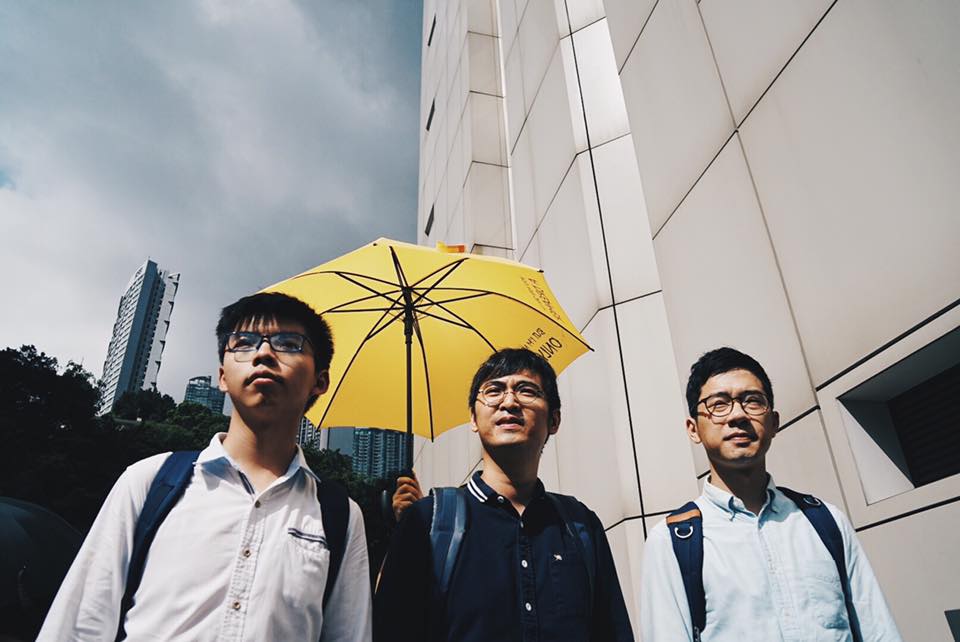Pro-democracy activist Alex Chow has criticised the Department of Justice after it said that the sentence review which led to his imprisonment did not involve any political considerations.
He was jailed on August 17 – along with fellow activists Joshua Wong and Nathan Law – over their involvement in the Civic Square clash which sparked the 2014 Umbrella Movement protests. The trio had previously been handed community service sentences and a suspended jail term for their unlawful assembly convictions, but the Department of Justice applied for a sentence review. As a result of the ruling, Chow received seven months behind bars, whilst Wong and Law received six and eight months respectively.
See more: HKFP’s full coverage of the Occupy protests

Chow said that “widespread deception” had become a reality in Hong Kong, with political neutrality serving as a means of hiding social truths.
“The action to retake Civic Square was a political protest triggered by the Hong Kong and Chinese government’s tyranny, but [Justice Secretary] Rimsky Yuen’s pushing aside of all obstacles in insisting on a sentence review led the decision to become a form of law enforcement,” said Chow.
“Carrie Lam later said that the sentence review had ‘no political motive’ and that society’s ‘groundless accusations’ against the court would only ‘shake the confidence of Hong Kong citizens’ and the international world’s confidence in the legal system’ – if this wasn’t a double-faced lie, it would be an example of the authoritarian government’s dark humour.”

Chow said that the government had used the rule of law as a means of muting political opposition and upholding sectoral interests. He said that one example could be seen in corporations’ use of grey areas in the law to encircle and gentrify local neighbourhoods.
“The law favours the privileged, and never protects the political, social and economic rights of the public. This is one of the reasons why political and social movements and urban and community reform actions keep breaking out,” said Chow. “The collusion between the government and corporations, adding onto the power of authoritarian rule and the use of the law as a means of ‘land-grabbing’, has allowed them to monopolise Hongkongers’ living space and remove protections on citizen welfare.”
Chow said that, in the future, it will be crucial for activists and the general public to understand and scrutinise the link between the actions of Hong Kong’s administrative, legislative, and judicial agencies, in light of Beijing’s repeated emphasis on “cooperation between the three powers.”

Chow said that Hong Kong citizens should continue to speak truth to social realities, and advocate for change.
“In this era of resistance, we must have a kind heart and a clear mind. Only with these qualities can we take up the duty of our generation – to strive on with diligence, to break through the fog, allowing justice and reason to see the light.”
On Friday, Chow filed an appeal against his jail sentence. The Department of Justice said that it had a received a notice of motion from Chow “seek[ing] a certificate from the Court of Appeal that a point of law of great and general importance is involved in the decision of the case.” If Chow’s application is accepted, his case will be heard at the Court of Final Appeal.
